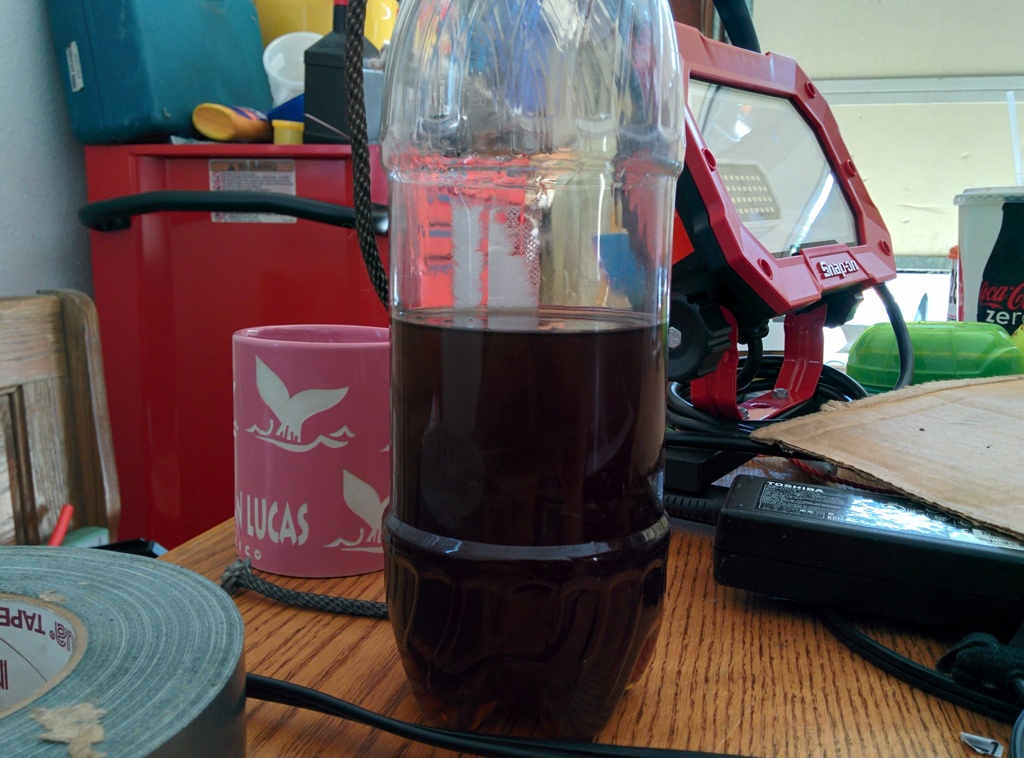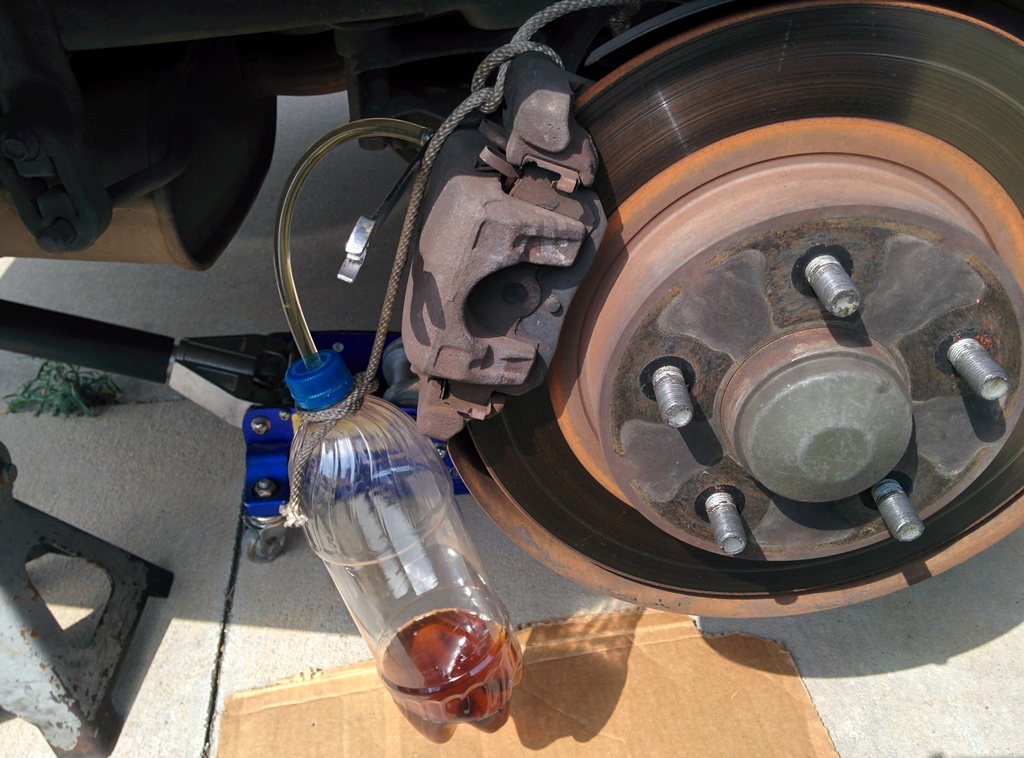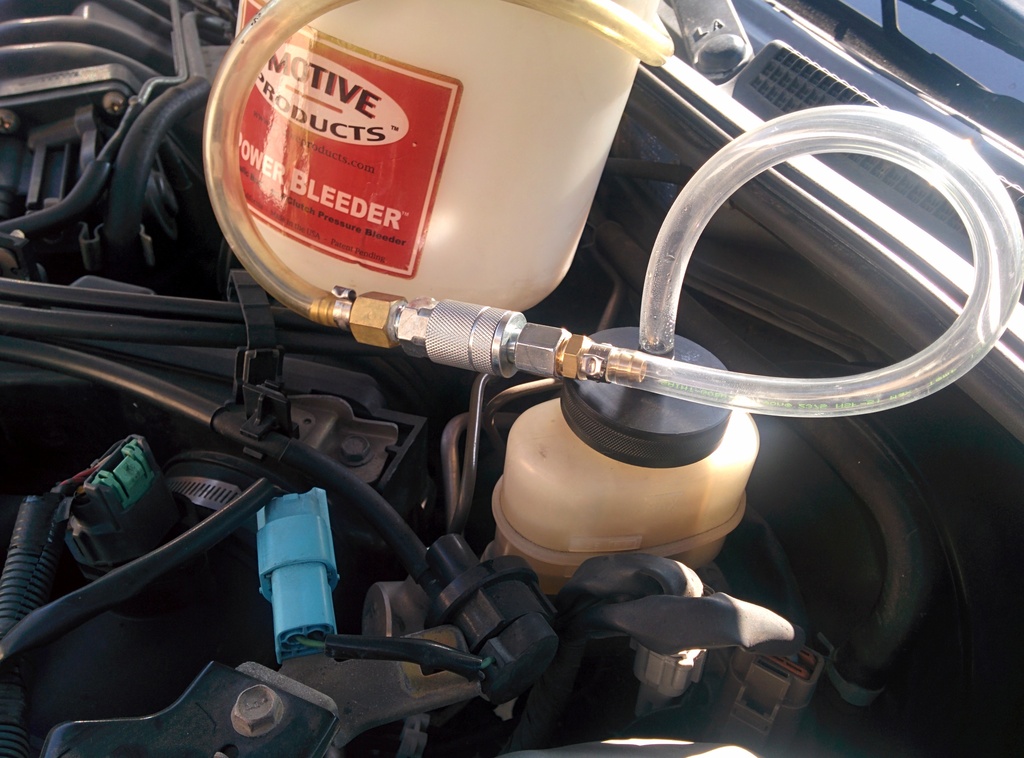How often do you guys change the brake fluid?
#3
I got my car two years ago, but I just changed it about a month ago. I haven't noticed any obvious difference in braking, but it's definitely something that should probably be done on an annual or biannual basis.
#5
I'm the second owner from like 05 I think and the fluid has never been changed.
Just added when doing the brakes.
Recently I've been doing allot of maintenence cuz I guess at about 200,000 everything
starts to need replacing... everything...
Anyway didn't feel anything I'm not racing so the fluid isn't boiling it's not going to feel any firmer just by changing it but it's good to keep your system from rusting.
Check it the old fluid.


Just added when doing the brakes.
Recently I've been doing allot of maintenence cuz I guess at about 200,000 everything
starts to need replacing... everything...
Anyway didn't feel anything I'm not racing so the fluid isn't boiling it's not going to feel any firmer just by changing it but it's good to keep your system from rusting.
Check it the old fluid.


#6
The problem with old brake fluid is that it eats up your seals. That's why it's pertinent to change it. If you get a lot of moisture in it, then it can start eating metal and with ABS that's a real big no no.
Last edited by Child_uv_KoRn; 01-12-2016 at 04:17 AM.
#7
What seals? Near the caliper? I didn't change my brake fluid until 235k (at 244k now) and when done I didn't notice any difference in braking; fluid wasn't even that dark before. Never had any leaks/brake problems but I was asking so I stay aware of potential trouble spots. Thanks.
#9
What seals? Near the caliper? I didn't change my brake fluid until 235k (at 244k now) and when done I didn't notice any difference in braking; fluid wasn't even that dark before. Never had any leaks/brake problems but I was asking so I stay aware of potential trouble spots. Thanks.
Hwy miles are easy on brakes, no doubt, but most people's fluid is black (I don't mean dark brown) by 100k+ and is just doing damage.
I haven't seen anything ever get so bad that it ruins ABS or master cylinder, but I've read plenty of stories about the master failing with really old fluid still in there (particularly when bleeding the brakes and fully depressing the pedal).
It's another thing that should just be done as cheap insurance. Sure, you don't have to change your PS steering or tranny fluid, either, but what do you think the wise decision is lol
Last edited by Child_uv_KoRn; 01-12-2016 at 06:42 PM.
#10
The biggest problem I've found with "old" fluid is contamination at the calipers, and the end result is a bore that is rusty/corroded and then sticking caliper piston(s). Because condensation resides in the lower portion of the brake system/caliper, with a 4 piston caliper, the lowers will stick first.
One practice I recommend is that when pads are replaced, when pushing/turning the pistons into the caliper, rather than pushing the fluid back to the master cylinder, undo the bleeder and let the fluid exit via the bleeder. Naturally, all the fluid in the caliper isn't expelled, but at least it will alleviate most of the contaminated fluid and no air will enter the system.
For those that don't want to jump in and do a flush, the brake fluid can be tested. For a reasonable price @ $7, brake fluid test strips can be purchased:
http://www.summitracing.com/parts/psl-3003
One practice I recommend is that when pads are replaced, when pushing/turning the pistons into the caliper, rather than pushing the fluid back to the master cylinder, undo the bleeder and let the fluid exit via the bleeder. Naturally, all the fluid in the caliper isn't expelled, but at least it will alleviate most of the contaminated fluid and no air will enter the system.
For those that don't want to jump in and do a flush, the brake fluid can be tested. For a reasonable price @ $7, brake fluid test strips can be purchased:
http://www.summitracing.com/parts/psl-3003
Last edited by Turbonut; 01-13-2016 at 03:58 AM.
#11
The biggest problem I've found with "old" fluid is contamination at the calipers, and the end result is a bore that is rusty/corroded and then sticking caliper piston(s). Because condensation resides in the lower portion of the brake system/caliper, with a 4 piston caliper, the lowers will stick first.
One practice I recommend is that when pads are replaced, when pushing/turning the pistons into the caliper, rather than pushing the fluid back to the master cylinder, undo the bleeder and let the fluid exit via the bleeder. Naturally, all the fluid in the caliper isn't expelled, but at least it will alleviate most of the contaminated fluid and no air will enter the system.
For those that don't want to jump in and do a flush, the brake fluid can be tested. For a reasonable price @ $7, brake fluid test strips can be purchased:
http://www.summitracing.com/parts/psl-3003
One practice I recommend is that when pads are replaced, when pushing/turning the pistons into the caliper, rather than pushing the fluid back to the master cylinder, undo the bleeder and let the fluid exit via the bleeder. Naturally, all the fluid in the caliper isn't expelled, but at least it will alleviate most of the contaminated fluid and no air will enter the system.
For those that don't want to jump in and do a flush, the brake fluid can be tested. For a reasonable price @ $7, brake fluid test strips can be purchased:
http://www.summitracing.com/parts/psl-3003
#12
I change mine every three years, however, I have trouble bleeding that sucker, when I drain it all out, and realized I need to bleed out the air and it takes forever, til I found out about the Reverse brake bleeding by Phoenix system, which really took out a lot of the hassle.
#13
I change mine every three years, however, I have trouble bleeding that sucker, when I drain it all out, and realized I need to bleed out the air and it takes forever, til I found out about the Reverse brake bleeding by Phoenix system, which really took out a lot of the hassle.
Thread
Thread Starter
Forum
Replies
Last Post





